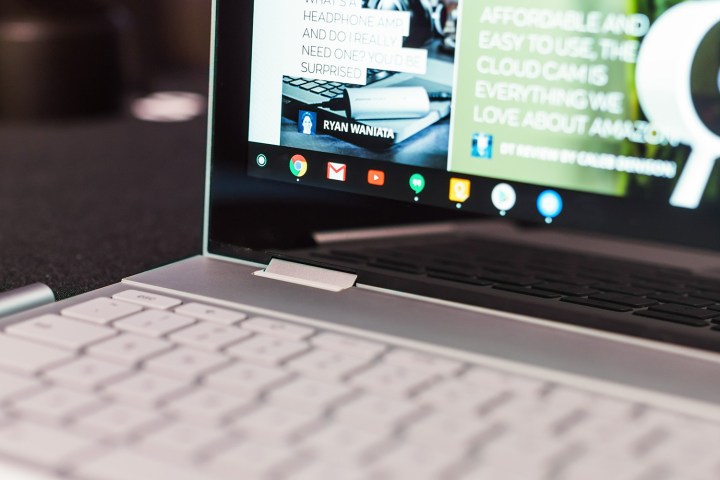
Currently, the only Chromebook that supports Google Assistant is the recent Pixelbook. But that could change in the near future, as Google is reportedly closer to adding baking support for the service right into Chrome OS. That means many Chromebooks could have access to the digital assistant in the near future, including the use of “OK Google” verbal commands.
The XDA Developers forum recently found new evidence of Google Assistant in the Chrome OS code, spotting a comment that states “add Assistant feature flags changes accordingly.” It follows two other Google Assistant appearances in Chrome OS in 2017, which added Google Assistant settings to the user interface, and a related settings command.
According to the clues uncovered by the forum, Google Assistant will be present within the operating system, but not necessarily an active feature. It will be disabled by default, and Chromebook manufacturers will determine if Google Assistant will be an active feature. Presumably, Chromebook owners won’t have the ability to manually toggle on the Google Assistant feature.
Based on the notes, Chrome OS will provide manufacturers with an additional setting for toggling on and off the Google Assistant hot-word listening feature. Theoretically, Chromebooks with built-in microphones that are plugged into an electrical outlet should easily support on-demand voice demands. But manufacturers could disable the feature to conserve power when Chromebooks switch to battery use.
Then again, notes show that manufacturers could assign Google Assistant to a button, thus it’s not always listening. In other words, Chromebook owners would press a specific key, and then wait for a prompt to say “OK Google.” This might be a better option for Chromebooks when they’re not plugged into an electrical outlet, especially on models with smaller batteries.
The process would be similar to what we have seen on Android phones. For instance, you can set the Samsung Galaxy S7 Edge to listen for “OK Google” on any home screen while the phone is in an active state. The drawback is that this feature drains the battery slightly faster. The alternative is to turn off the always-listening feature and simply long-press the Home button to activate Google Assistant for longer battery life.
Google Assistant in Chrome OS is seemingly long overdue. Microsoft already provides a virtual assistant, Cortana, in Windows 10 that actively listens for commands. Microsoft also offers Cortana on Android and iOS devices for multi-device assistance, such as receiving Android-based text messages on Windows 10 PCs. Chromebooks have lacked any type of virtual assistant until the arrival of Google’s Pixelbook toward the end of 2017.
That all said, given we are already into the second month of 2018, Google Assistant could become a live feature in Chrome OS by the end of the year. Availability will likely depend on the Chromebook’s underlying hardware, and be at the discretion of Chromebook manufacturers.


